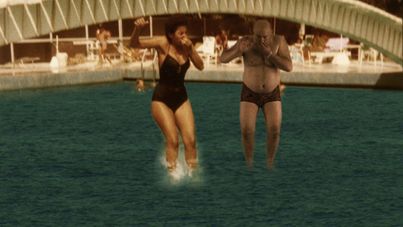Seven Things that Happened While You Were Sleeping: Reflecting on Traces, Documents and Archives
The archive — traditionally defined as a repository or ordered system of documents — has incessantly played a significant role in the construction of historical knowledge. Manifesting itself in various forms of traces, it remains until today the primary site for storing, retrieving and interpreting the past. But how could the archive account for all the moments that have not been recorded, the moments of which there has not been a physical trace as such? Could we possibly retrieve from the archive the immaterial, invisible, fleeting sounds and smells that once constituted an experience in its wholeness and magnitude? And what does the archive, delineated by the very limitations of language itself, push away from its own sphere?
While historians and philosophers have long sought to unpack the notion of the ‘archive’, art has been a sphere for critiquing its agency, disturbing its alleged factuality, challenging the illusion of its completeness and destabilizing its authority. With the expansion of the archive from its conventional narrow interpretation as the collection of “official records” to include all forms of cultural production and personal accounts, hundreds of artists working with film and video sought to produce counter memories relying on the archive as malleable raw material available for them to deconstruct, recycle and manipulate. But while the appropriation of archives is mostly recognized for its critical subversive potential, how far can this potential go if archive-based art - by its very nature - constantly positions itself in relation to the archive itself, perpetually dwelling within its aesthetic and reacting to its narratives?
Through readings, discussions, screenings and guest lectures, we will deal with the archive not only as a collection of records or documents, but rather as an omnipresent linguistic and discursive system. We will engage with the canon of archival theory, while putting it in conversation with critical texts, films and videos that question this canon by deconstructing the notion of the ‘archival’, destabilizing the fetishization of the document as an unquestionable locus of knowledge production and calling into question the very definition of an ‘event’ worthy of documentation. We will also pay special attention to the ways in which the systematic recording, collection and storage of data today by means of non-human objects change the landscape of knowledge and calls into question the relevance of canonical theoretical works engaging with the archive.
The 10-week workshop is participatory, discussion-based, multi-disciplinary and open to artists, writers and researchers with interest and/or experience in the subject matter. Sessions will start on October 15 and will take place weekly through December 17 every Tuesday from 6pm to 9pm at silent green Kulturquartier.
The workshop will be led by Mohammad Shawky Hassan, a filmmaker living and working between Cairo and Berlin. Shawky’s work has been shown at the Berlinale, HKW, MUCEM, Sursock Museum and Contemporary Image Collective (CIC) among others, and acquired by the Museum of Modern Art (MoMA). He completed his MA in philosophy in 2016 at the American University in Cairo where he wrote his thesis titled ‘On the Limitations of the Archive: Affective Traces, Sensible Intensities and the Humming Background Noise of the Universe.’
The seminar will be held in English.
Attendance/Registration
The number of participants is limited (12 persons).
Attendance fee: 120 Euro / 100 Euro (members, students, Berlin-Pass) / 90 Euro (members of arsenal-Freundeskreis)
.
Registration deadline is October 1, 2019
Download Registration Form
Venue
Arsenal – Institiut for Film and Video Art
@ silent green Kulturquartier
Gerichtstr. 35, 13347 Berlin
Contact
Nathalie Knoll, Markus Ruff
archive(at)arsenal-berlin.de

